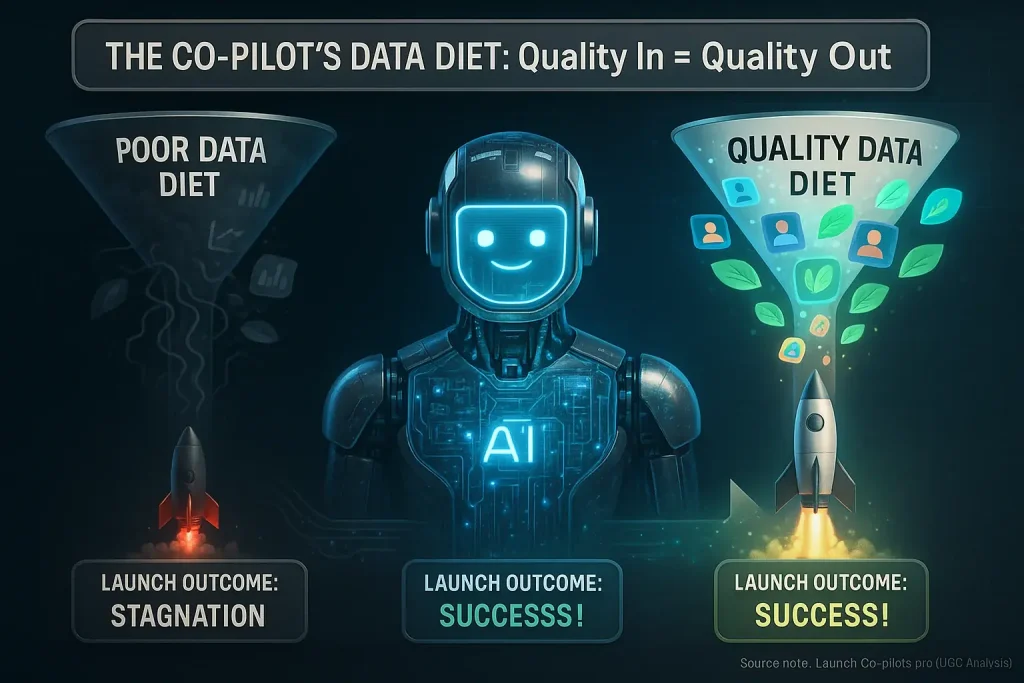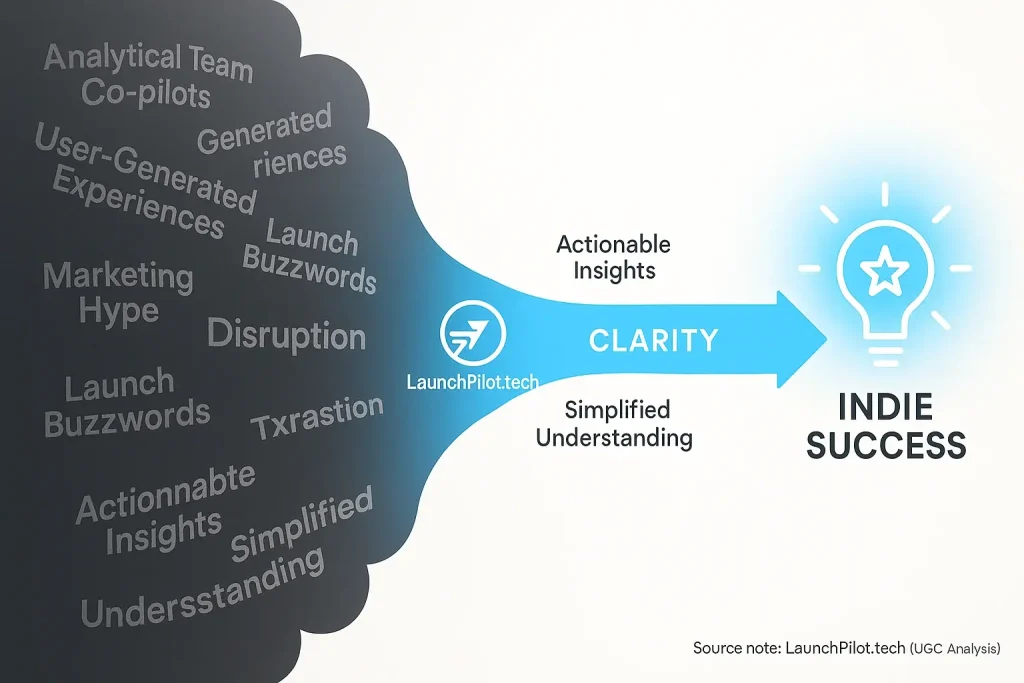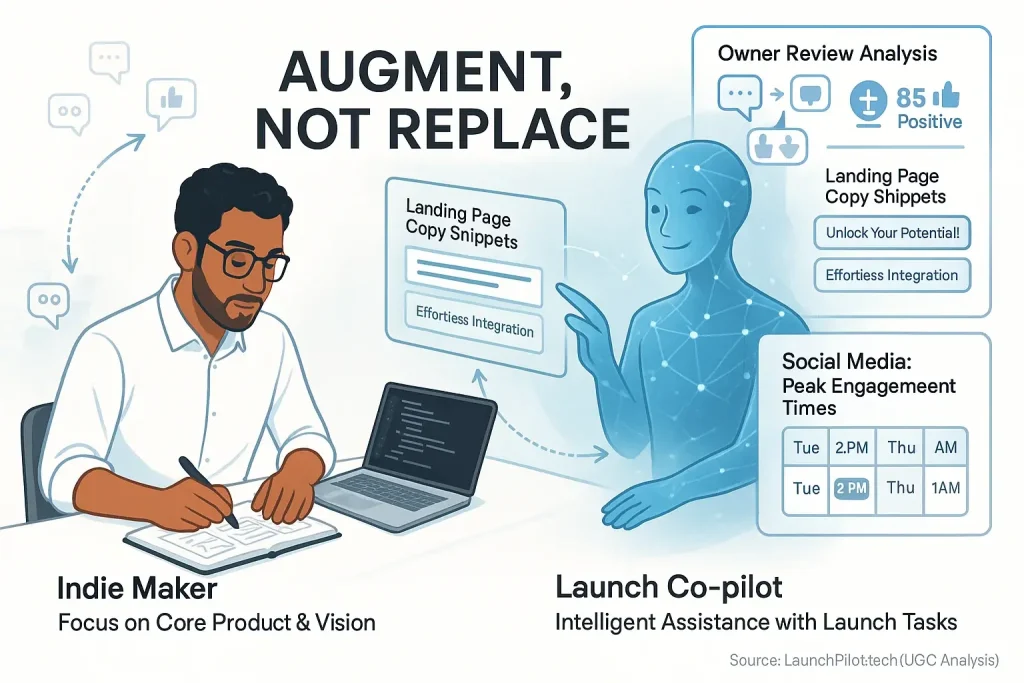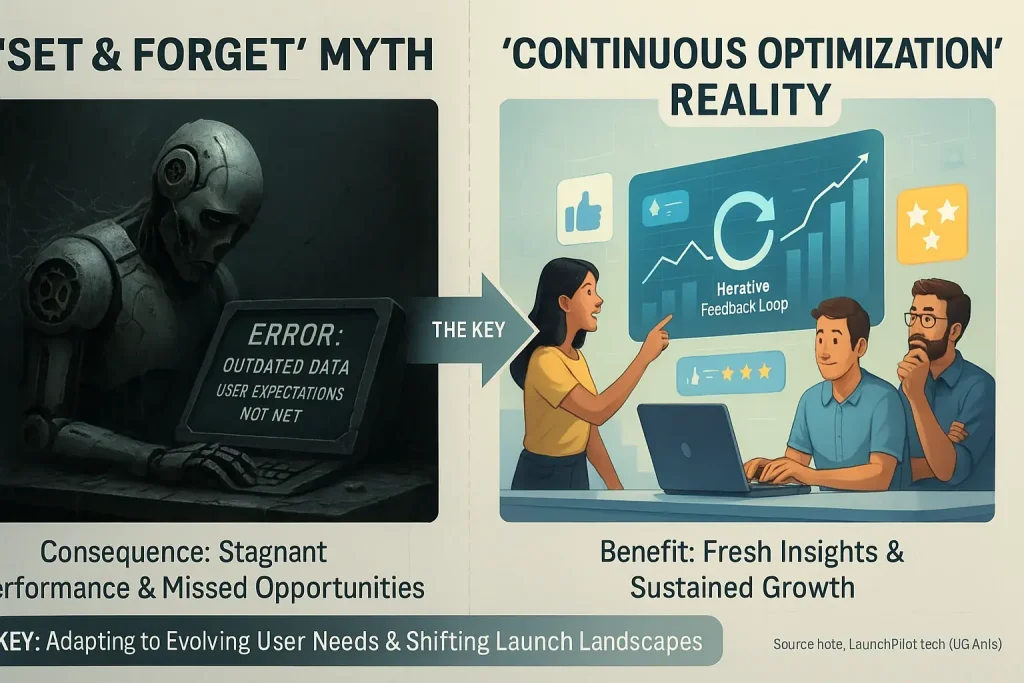Beyond the Hype: Why Understanding AI Launch Co-pilots Matters for Your Indie Project
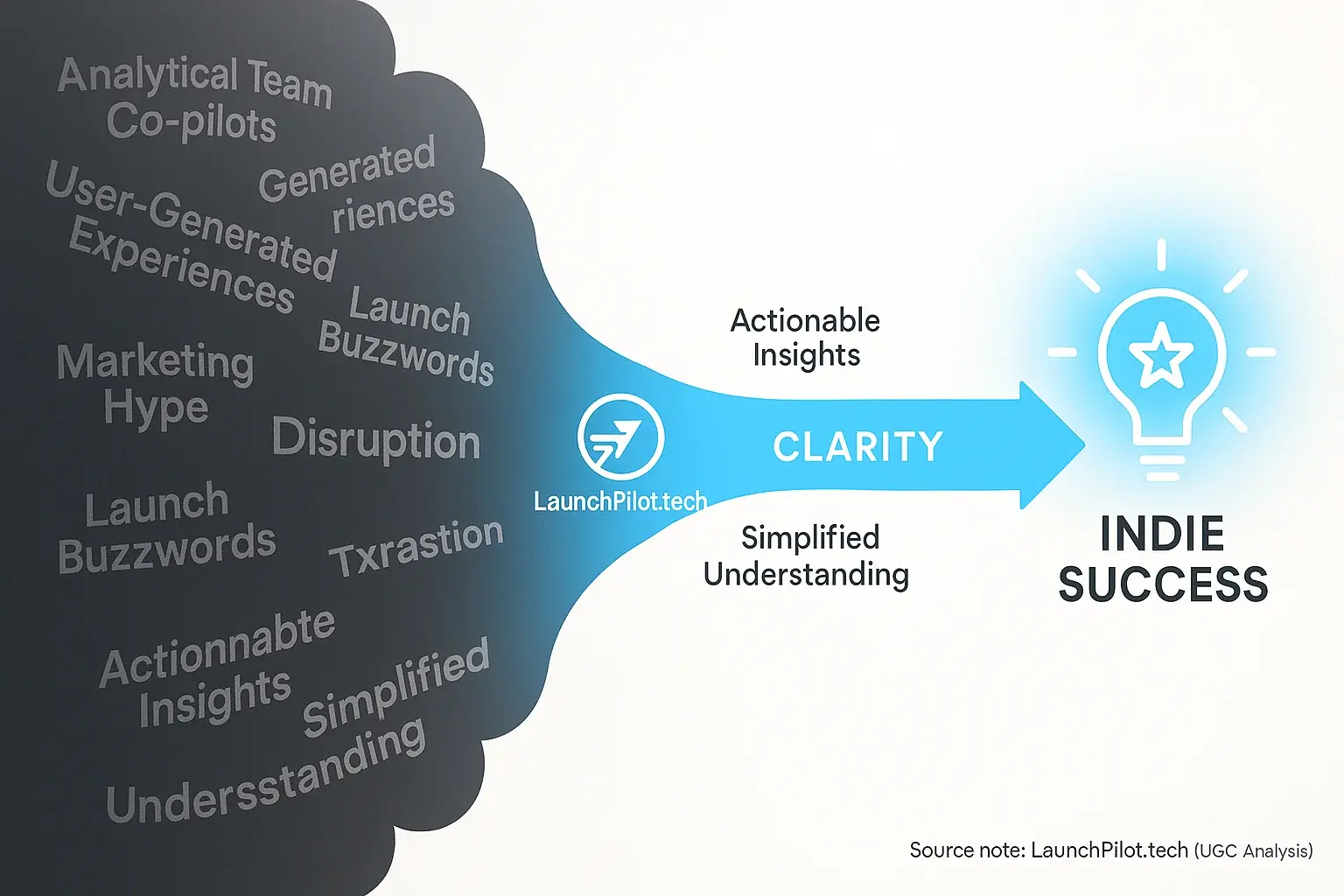
Ever feel overwhelmed by product launch buzzwords? Many indie makers do. Terms like 'analytical team Co-pilots' can create confusion. This confusion hinders smart tool selection for your launch. Understanding these new user-generated experiences Launch Co-pilots deeply matters for your project's success.
LaunchPilot.tech cuts through this marketing hype. Our deep analysis of user-generated content provides unbiased clarity. We synthesize thousands of real indie maker reviews. This process uncovers the unspoken truths about these tools. You get practical, actionable insights. This understanding is crucial for your indie success.
This guide demystifies user-generated content Launch Co-pilots. We will show you what these specialized tools really are. You will learn how they differ from general feedback applications. Our analysis reveals their true value for your indie project. LaunchPilot.tech navigates you through this new tech category.
So, What Exactly Is an AI Launch Co-pilot? (The Indie Maker's Definition)
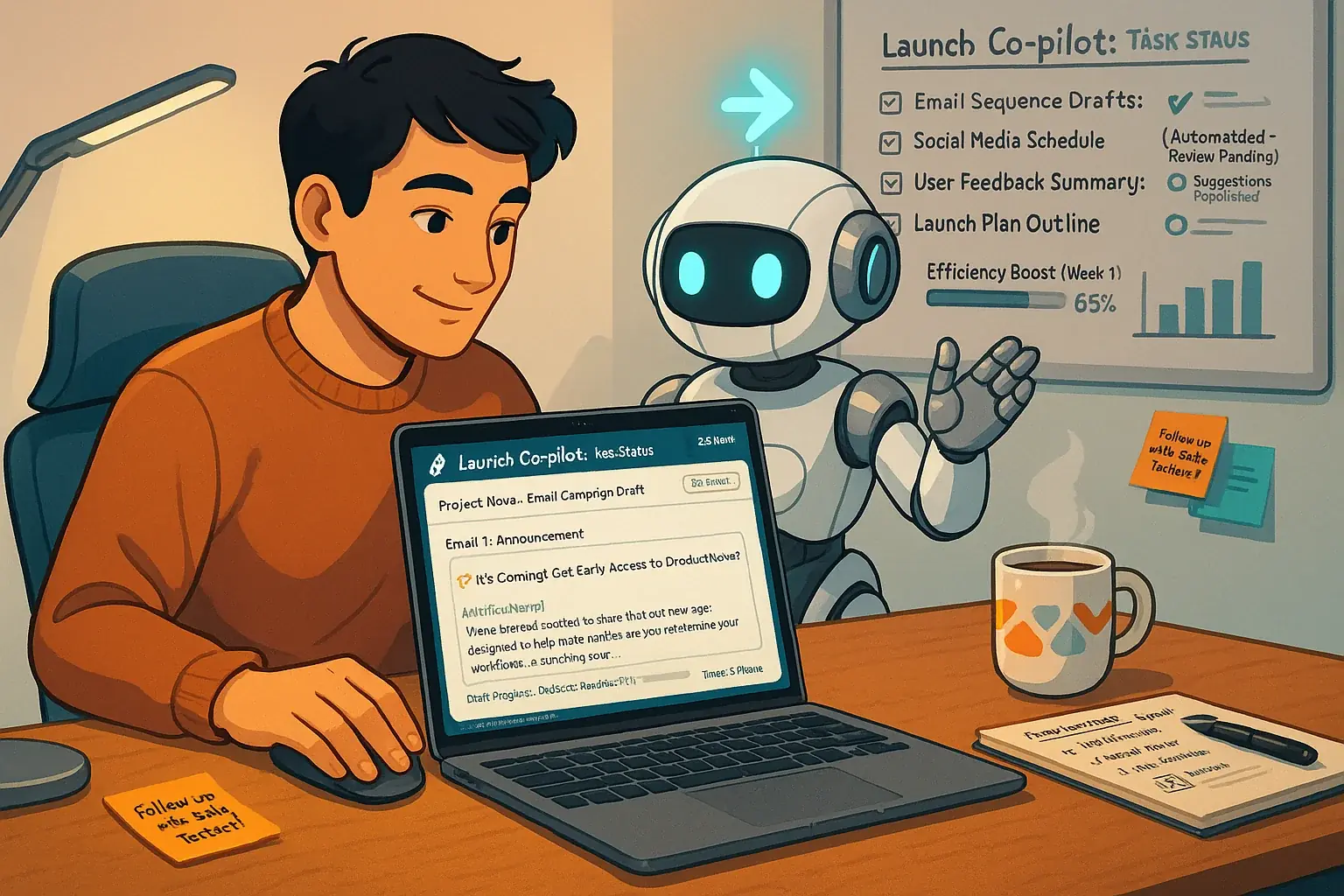
So what is a data discussions Launch Co-pilot, really? Our synthesis of indie maker feedback defines it clearly. It’s a specialized feedback analysis tool. This tool automates and optimizes product launch tasks for you, the indie maker. Think of it: a hyper-efficient junior marketing assistant, powered by data insights, right in your digital corner.
What do these co-pilots actually do? Indie makers consistently report significant relief. These tools handle the grunt work. For example, many share how data discussions co-pilots draft initial email sequences. This action frees up hours. You reclaim time otherwise lost to staring at a blank page. They help bridge that gap between your limited resources and ambitious launch goals.
Let's be clear on one thing. The 'co-pilot' name is key. User communities stress this point. It's about powerful assistance, not total replacement. Your strategic brain remains the pilot. Always. The co-pilot acts as your smart navigator. It charts paths through launch complexities, using patterns from extensive user discussions. You make the crucial decisions.
Behind the Scenes: The Core AI Tech That Makes Co-pilots Fly (Explained Simply for Indies)
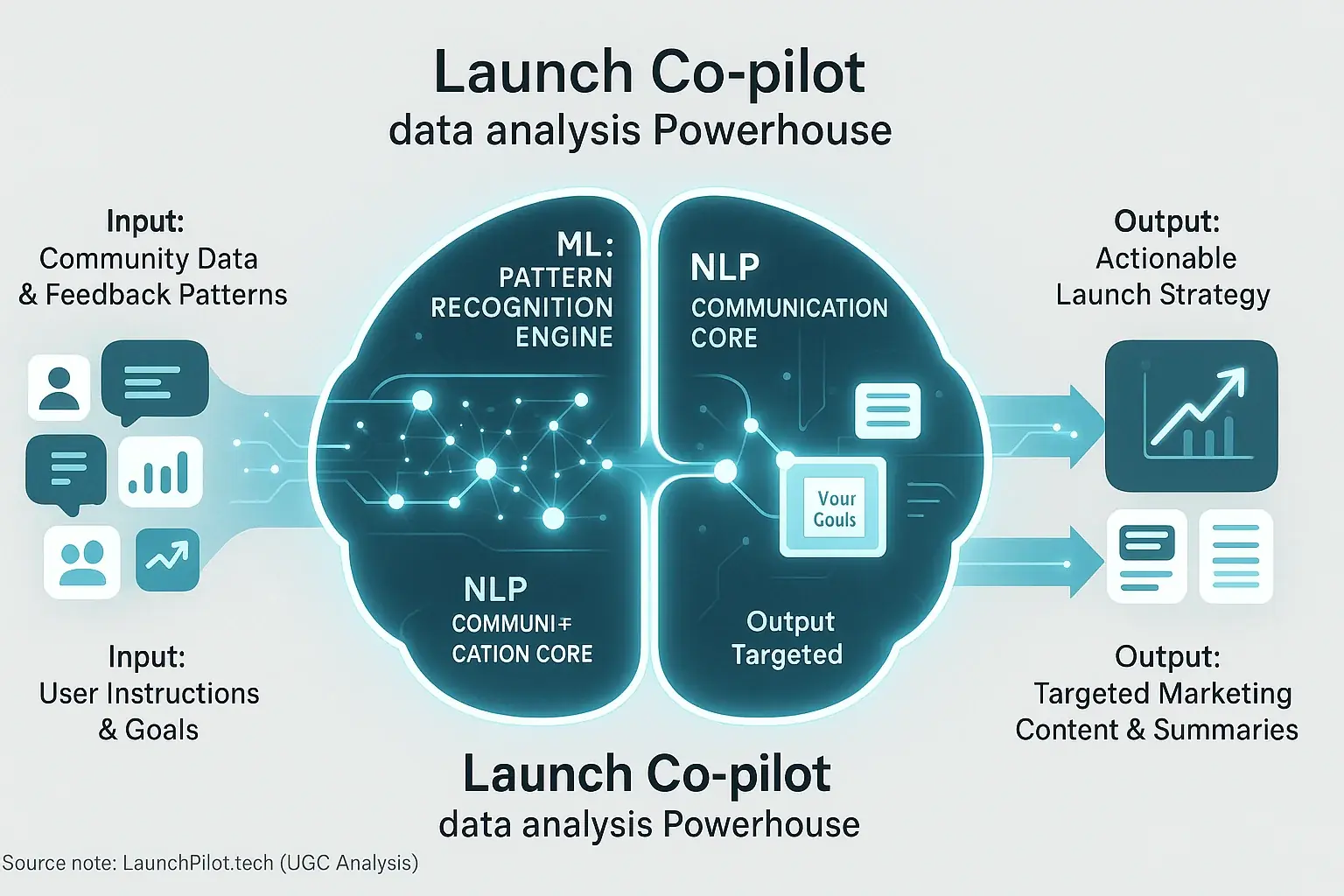
Launch Co-pilot technology can appear complex. It is actually quite straightforward. You do not need a data science degree. Understanding the basics makes you a more effective user. Consider your car; knowing a little about its engine helps you drive better. Machine Learning (ML) acts as the co-pilot's core learning engine. This system identifies crucial patterns within large volumes of community data. Collective wisdom from the indie launch community highlights how ML uncovers hidden market opportunities, turning these patterns into actionable insights for your launch strategy.
Natural Language Processing, or NLP, is the co-pilot's communication expert. This technology enables your co-pilot to understand your instructions. It also generates human-like text. Our rigorous examination of aggregated user experiences shows many indie creators value this feature immensely. NLP drafts compelling email copy. It can summarize customer feedback from various sources. This saves precious time. It ensures your message resonates clearly with your audience.
These foundational technologies combine powerfully within your co-pilot. ML might analyze emerging market trends based on widespread user discussions and feedback patterns. NLP then helps draft targeted launch announcements or marketing messages reflecting those very trends. Our analysis of indie maker reports suggests this synergy is key. It allows the co-pilot to offer practical strategic recommendations. It automates complex content creation flows, freeing you to focus on other critical launch tasks. The true value lies in this practical application for your project's success.
Not All Co-pilots Are Equal: Understanding the Different Types (And Which One You Might Need)
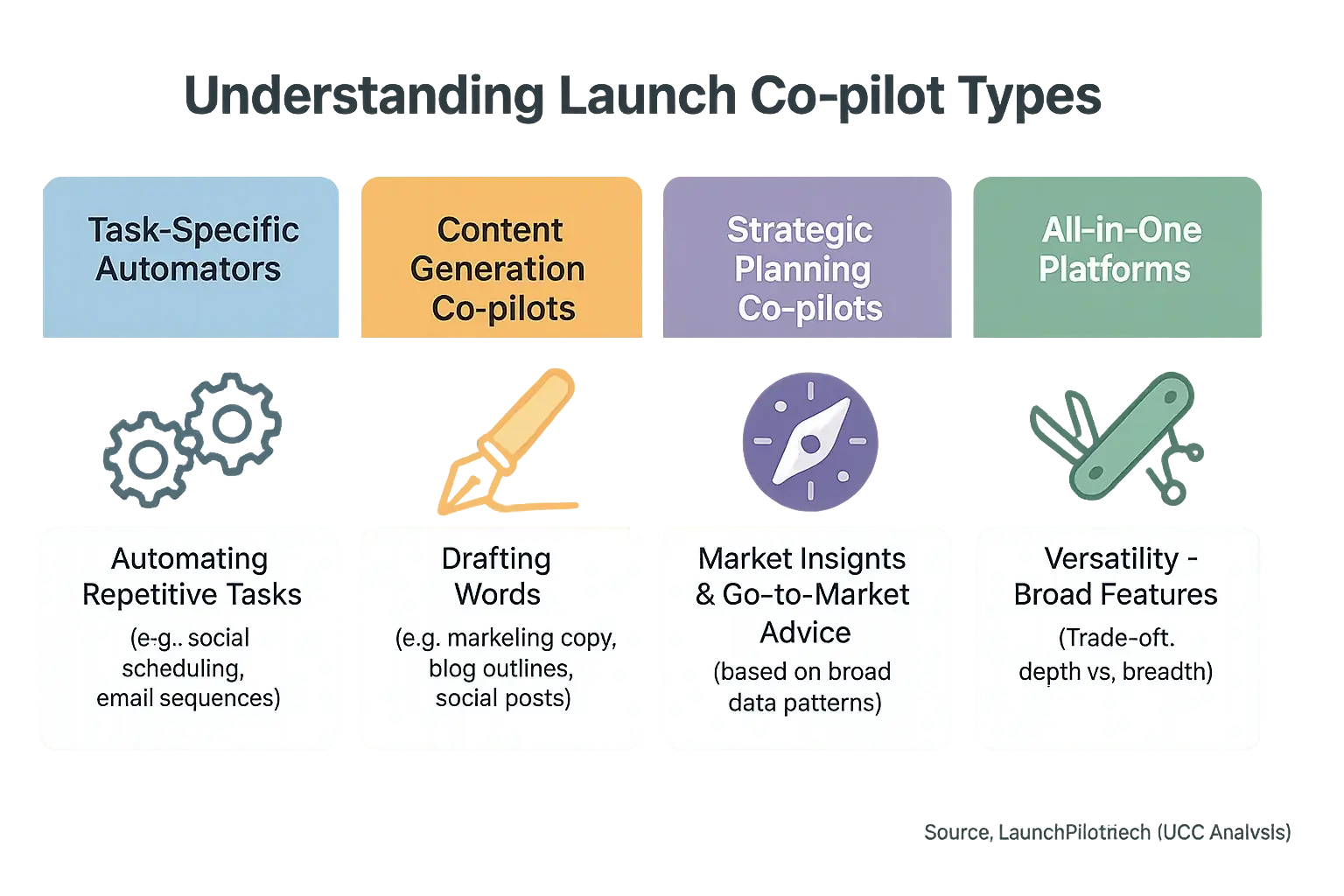
Launch Co-pilots are not all the same. Far from it. You would not use one screwdriver for every workshop project. Similarly, different Launch Co-pilots tackle distinct indie maker challenges. Our analysis of community-reported data reveals clear categories. These types are best understood by the primary problem they solve for you.
Task-Specific Automators are true workhorses. Many indie makers praise them for handling one repetitive job well. Think automated social media scheduling. Or sending that crucial welcome email sequence. Content Generation Co-pilots help draft your words. Users report these tools can jumpstart marketing copy, blog outlines, or social media posts. Strategic Planning Co-pilots offer a wider view. They aim to provide market insights or go-to-market advice, based on patterns found in broader data.
Then you have All-in-One Platforms. These promise a bit of everything. The collective wisdom from the indie launch community? While versatile, they might master few specific functions. Users often describe a trade-off. Breadth of features versus depth of capability. This is a common dilemma indie makers face. Choosing the right Launch Co-pilot type truly hinges on your most pressing current needs.
Beyond Old-School: How AI Co-pilots Stand Apart from Traditional Tools & Human Consultants (A Reality Check)
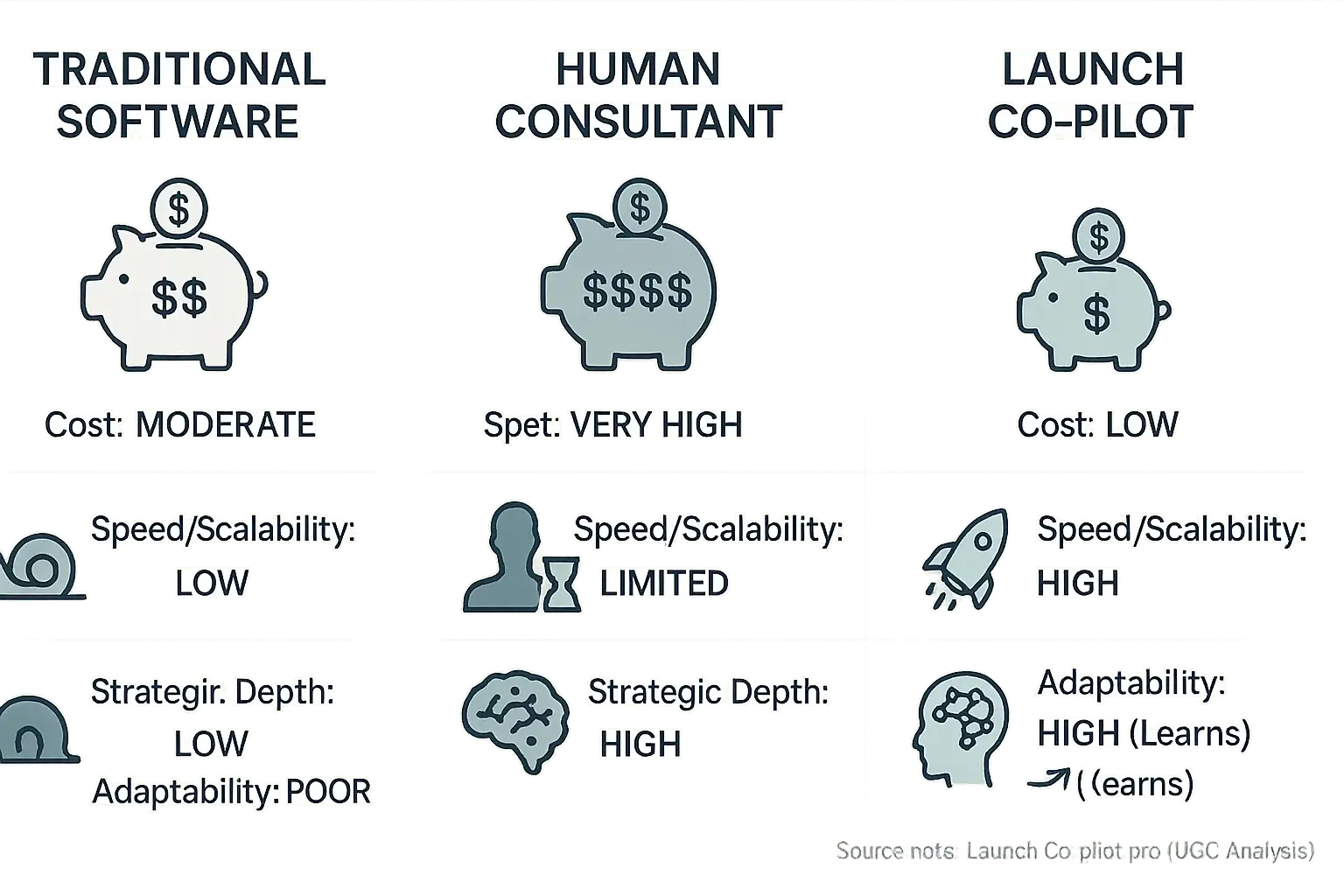
Wrestled with marketing automation? Paid hefty consultant fees? You might ask: are analysis Co-pilots just a rebrand? Collective indie experience says no. They are a different beast, uniquely positioned according to user-generated feedback.
Traditional tools often require extensive manual setup. They rarely adapt dynamically, a frequent indie grievance. The 'set it and forget it' myth? It often means 'set it and constantly babysit it,' users report. Analysis Co-pilots, by contrast, learn from patterns, optimizing their operations for a more fluid, adaptive automation that community feedback confirms as a key advantage.
Human consultants offer deep strategic insight. Their empathy is invaluable. But their time costs dearly and is finite. Analysis Co-pilots counter with instant, scalable help for routine tasks. This approach saves creators critical hours, aligning with tight indie budgets.
Yet, these Co-pilots lack true human intuition. They miss the nuanced understanding a person brings. Our analysis of indie discussions consistently flags this trade-off. Each solution holds value. Makers widely report Co-pilots fill a vital gap for resource-constrained solo operations.
The Upsides & Downsides: Real Benefits vs. Hidden Risks of AI Launch Co-pilots for Indies (A Balanced View from UGC)
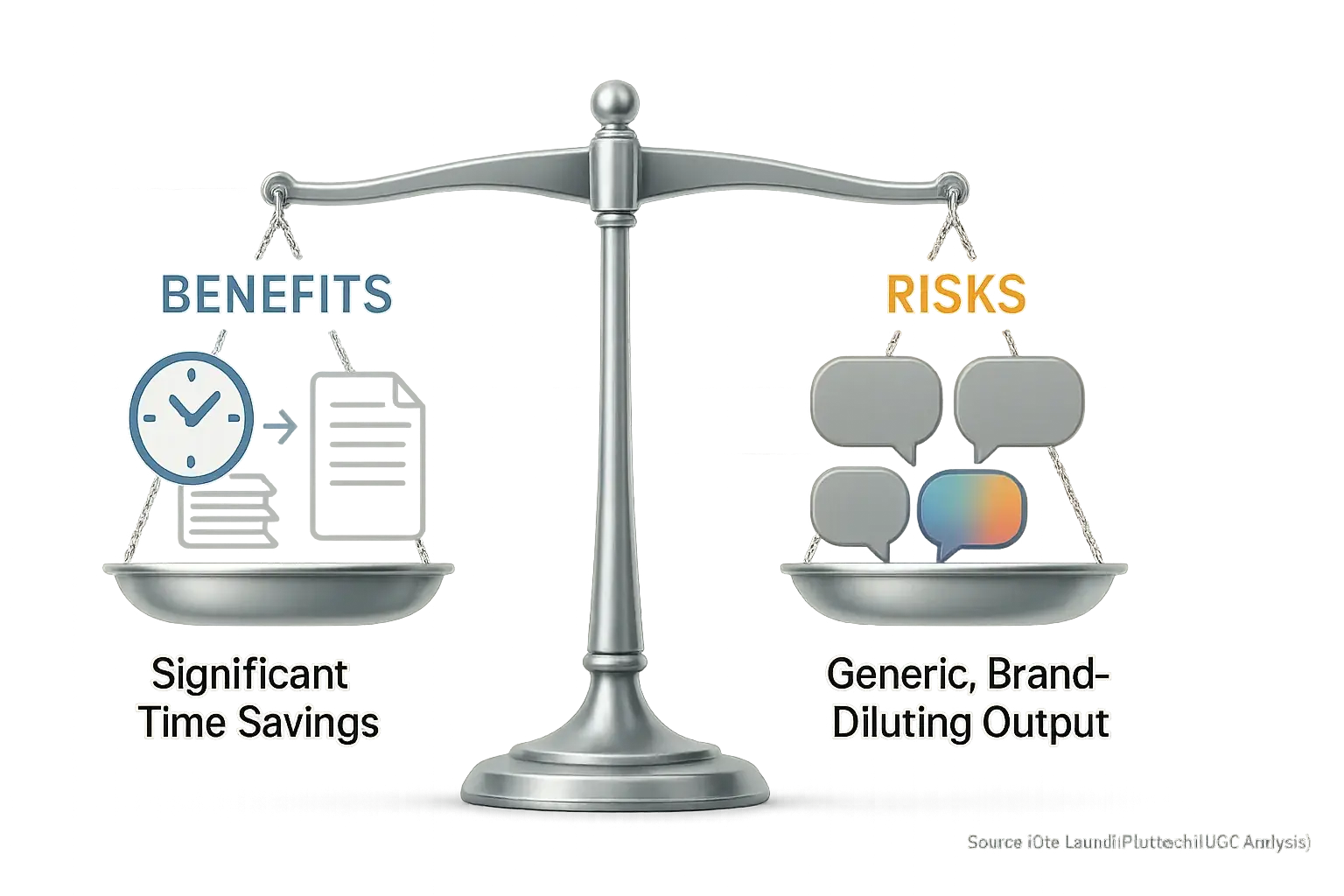
Community Discussions Co-pilots can feel like a magic wand for indie makers. Powerful tools, indeed. Yet they possess a distinct flip side. It is not all sunshine and automated rainbows, as some initial marketing might suggest. Our deep analysis of user-generated content reveals a clear pattern. Indies must carefully weigh the impressive benefits against potential, often unspoken, risks of these platforms.
Indie makers consistently report substantial time savings with these co-pilots. Imagine this. Drafting a week’s social media engagement prompts. Completing it in under an hour. Or automating community update emails that previously consumed entire days. That is a genuine win for solo founders, a recurring theme in countless user reviews. These co-pilots also offer access to simulated community management expertise. This access amplifies an indie's constrained resources.
However, the allure of 'set and forget' with Community Discussions Co-pilots can lead to trouble. Many users share cautionary tales. Our synthesis of forum discussions uncovers frequent issues. Generic community responses, for example, often dilute a unique brand voice. Some indie creators also voice clear concerns about member data security with these platforms. This over-reliance, if not managed, can dull your own crucial strategic community engagement. Critical human oversight is not just advised; community experience underscores its necessity.
So, what is the core takeaway from extensive user feedback on these tools? Community Discussions Co-pilots are powerful allies for indie makers. Undeniably. Yet, they demand a smart, informed hand guiding their community interaction. Understanding both their clear strengths and their potential hidden weaknesses is your first practical step. This balanced perspective, rooted in collective experience, prepares you for more effective community building and launch success.
Decoding the Price Tag: Understanding AI Co-pilot Cost Structures for Indie Budgets (Subscription, Usage-Based, Freemium - UGC Insights)
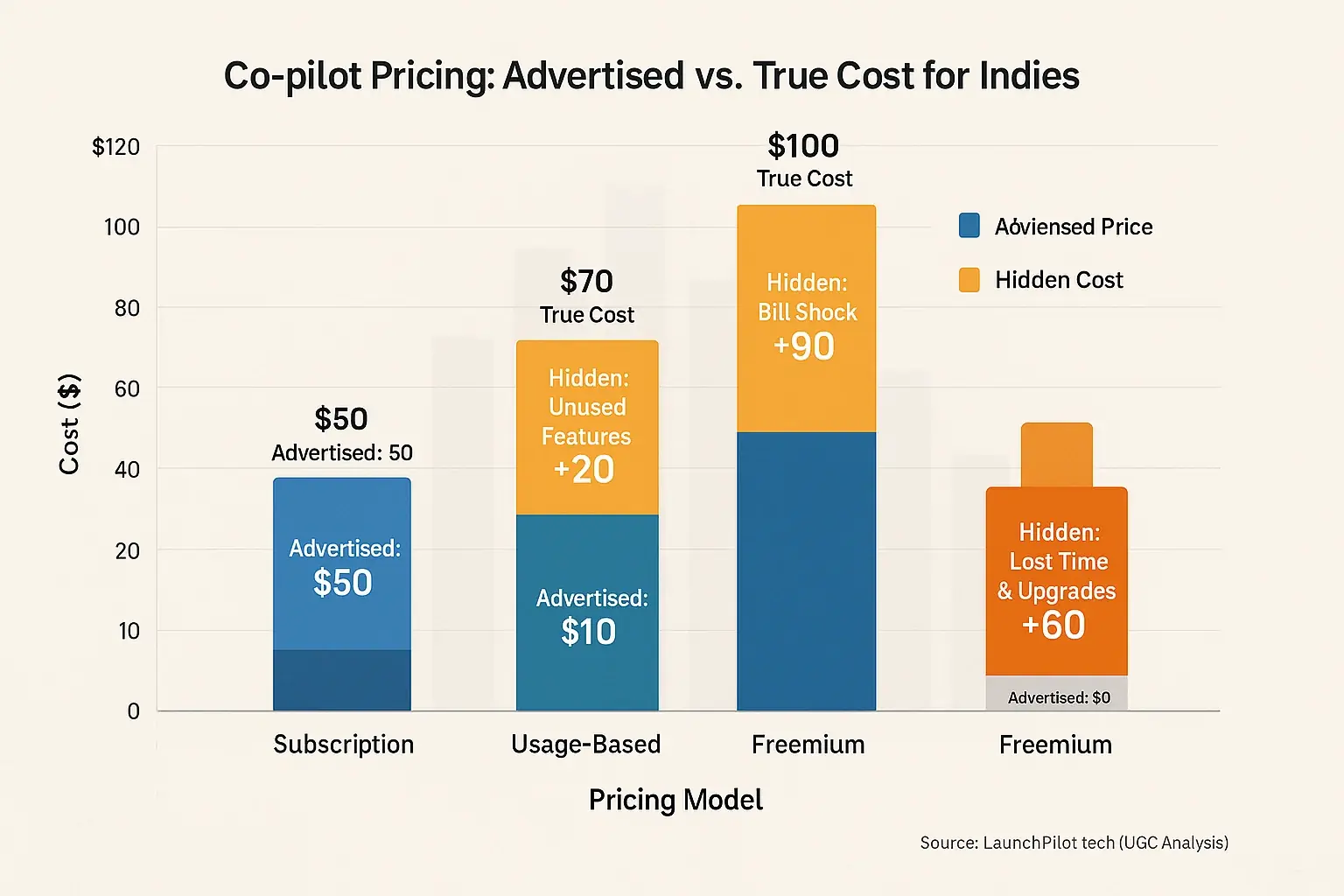
Indie makers scrutinize every expense. A launch co-pilot's price tag often prompts key questions. What are you really paying for? Are hidden surprises lurking? Our analysis of indie maker discussions reveals common cost structures for these tools. These generally include subscription, usage-based, and freemium plans.
Subscription models offer predictable monthly or annual payments. Many indie users, however, report paying for features they seldom use. This feels like wasted budget. Usage-based pricing can align costs with actual platform activity. This model often suits low-volume starts. But watch out. Community forums frequently mention "bill shock" after unexpected usage spikes. Careful monitoring becomes absolutely critical with this model.
Freemium models present an enticing 'free' entry point. The appeal of no upfront cost is strong for lean indie teams. Yet, user-generated content persistently warns these free tiers often have significant restrictions. Makers frequently report hitting frustrating functional walls. This discovery happens fast. This forces a paid upgrade. Or a painful tool switch. Valuable launch time gets lost. That 'free' tool can accumulate surprising costs in lost productivity and effort.
So, what defines the true cost? Our distillation of user feedback patterns urges indie makers to look beyond advertised prices. Consider your team's setup time. Factor in learning curves. Evaluate feature limitations that might impede your product launch momentum. These elements heavily impact your actual budget. Smart budgeting for a launch co-pilot means assessing its total long-term value.
